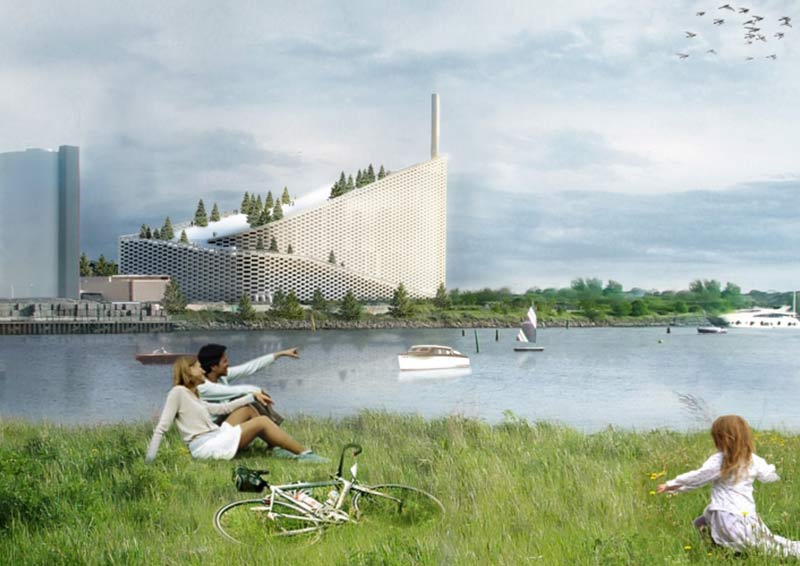Smarter future for energy
The 15th International Conference on Technology Policy and Innovation (ICTPI) attracted 150 delegates, whose interests ranged across a set of interlinking themes including smart cities, new economy, energy and data security. The conference saw a range of fascinating insights into the prospects for a smarter future for our energy system.
The four papers that were published after the conference are not narrowly technical assessments. Rather they address the role of people, policy and private companies in building a sustainable and appropriate energy system.
The first paper, by Richard Bull and Marouane Azennoud, emphasises the importance of participatory decision making (Bull and Azennoud, 2016). It makes specific reference to the case of energy-from-waste infrastructure in Hampshire, UK.
The emphasis on the importance of social factors is continued in the second paper, from Per-Anders Langendahl and his co-authors (Langendahl et al., 2016). That work considers the importance of demand-side response (DSR).
Drawing upon a series of case studies it notes that DSR can be motivated by a range of considerations including:
- Network peak management.
- Network fault recovery.
- The system integration of renewable energy sources.
One important observation in the paper is the importance of recognising that plans are always best shaped with a thorough appreciation of local circumstances.
The third paper, by Sara Lupini, stresses the importance of, and the challenges inherent in, corporate social responsibility (CSR) in the energy sector (Lupini, 2016).
She also takes a case-based approach considering the energy system (oil and liquid petroleum gas) of Belize. She surveys the issues of CSR implementation and stresses the benefits of more holistic (across both business and social value) decision-making; a process known as creating shared value.
The final paper, from Richard Snape, Peter Boait and Mark Rylatt, examines the effectiveness of two specific energy policy measures deployed in the UK (Snape et al., 2016).
The research method involves agent-based modelling and it seeks to unpick the drivers and inhibitors of the roll-out of new renewable energy technologies favoured by two different UK government policies.
The authors note that, ‘there are some differences to the economic benefits for adopters between the policies, but when analysed in terms of payback period at policy inception, the differences between technology types within the same scheme are more significant than the difference between the most attractive technologies under either scheme at the time the scheme was introduced’.
Respecting that the caveat around time of introduction is important, it is interesting to note that while policies only differed to a small degree in terms of initial attractiveness, their actual roll-outs under the two key policies varied greatly in terms of pace and scale.
It is possible to see a high level of commonality of message across the four papers presented here. All four papers remind civil engineers to consider issues beyond the narrowly technical when looking to the future of energy.
The papers presented serve as a reminder that it is important to embark on techno-social system change with an open mind and to adopt a socially inclusive deliberative approach drawing upon as wide a range of insights and perspectives as is practical.
This article was originally published here by ICE on 31 August 2016. It was written by Simon Fullalove.
--The Institution of Civil Engineers
[edit] Find out more
[edit] Related articles on Designing Buildings Wiki
- Articles by ICE on Designing Buildings Wiki.
- Buying green in the construction industry.
- Dynamic response to energy.
- Natural gas.
- Oil - a global perspective.
- Shale gas.
- Smart cities and smart energy, summary and opportunities.
- Sustainability in building design and construction.
- The effectiveness of current smart home technologies to improve energy efficiency.
Featured articles and news
UK Infrastructure: A 10 Year Strategy. In brief with reactions
With the National Infrastructure and Service Transformation Authority (NISTA).
Ebenezer Howard: inventor of the garden city. Book review.
The Grenfell Tower fire, eight years on
A time to pause and reflect as Dubai tower block fire reported just before anniversary.
Airtightness Topic Guide BSRIA TG 27/2025
Explaining the basics of airtightness, what it is, why it's important, when it's required and how it's carried out.
Construction contract awards hit lowest point of 2025
Plummeting for second consecutive month, intensifying concerns for housing and infrastructure goals.
Understanding Mental Health in the Built Environment 2025
Examining the state of mental health in construction, shedding light on levels of stress, anxiety and depression.
The benefits of engaging with insulation manufacturers
When considering ground floor constructions.
Lighting Industry endorses Blueprint for Electrification
The Lighting Industry Association fully supports the ECA Blueprint as a timely, urgent call to action.
BSRIA Sentinel Clerk of Works Training Case Study
Strengthening expertise to enhance service delivery with integrated cutting-edge industry knowledge.
Impact report from the Supply Chain Sustainability School
Free sustainability skills, training and support delivered to thousands of UK companies to help cut carbon.
The Building Safety Forum at the Installershow 2025
With speakers confirmed for 24 June as part of Building Safety Week.
The UK’s largest air pollution campaign.
Future Homes Standard, now includes solar, but what else?
Will the new standard, due to in the Autumn, go far enough in terms of performance ?
BSRIA Briefing: Cleaner Air, Better tomorrow
A look back at issues relating to inside and outside air quality, discussed during the BSRIA briefing in 2023.
Restoring Abbotsford's hothouse
Bringing the writer Walter Scott's garden to life.
Reflections on the spending review with CIAT.
Retired firefighter cycles world to raise Grenfell funds
Leaving on 14 June 2025 Stephen will raise money for youth and schools through the Grenfell Foundation.
Key points for construction at a glance with industry reactions.

























